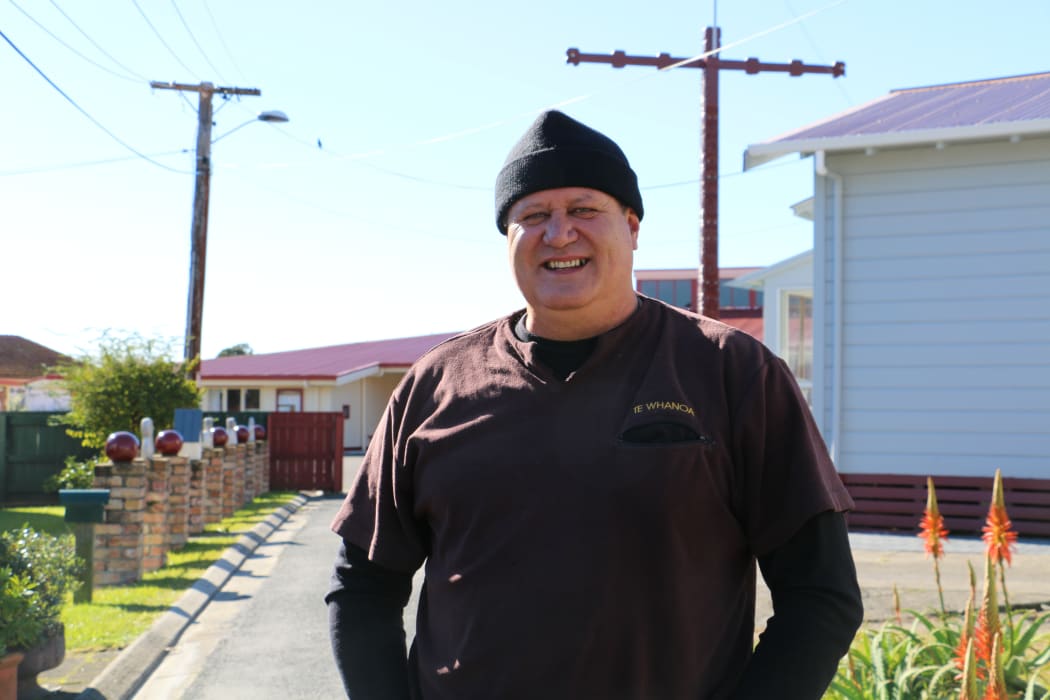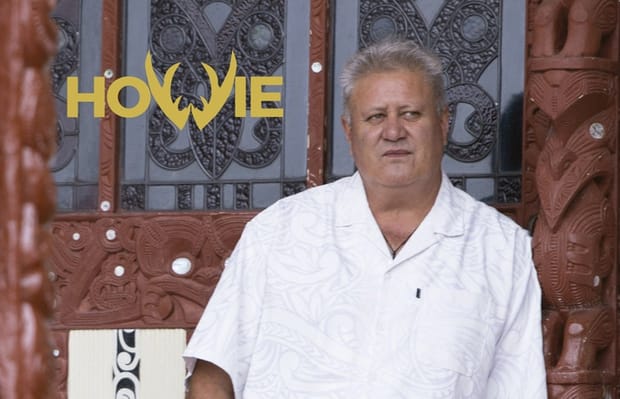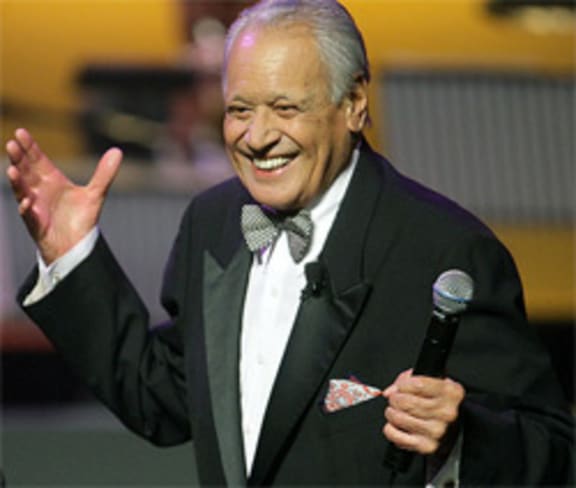
Howie was encourage by his mate John Tamihere to produce his debut album. Photo: RNZ/Justine Murray
Howie Morrison Jr has a famous whanau saying – 'Have piupiu, will travel'. For 40 years, kapahaka has taken him around the world and this year he released his first solo album Howie.
Te Ahi Kaa visits the musician at his home in Rotorua for a chat and Howie plays an acoustic version of one of his favourite songs to mark Māori Music Month.
It was a frank conversation with a friend which gave Howie Morrison the impetus to produce his first solo album.
“My good friend John Tamihere I owe a lot to. It’s like this, we sat down and he said 'Well, it’s like this, mate. You’re not getting any younger. You’ve got one shot, if you go down the gurgler you’ve got yourself to blame” he laughs.
Howie was officially released this year on Mother’s Day with a cover of the Prince Tui Teka classic Mum its first release.
The original plan was to produce a five-song EP, but Howie later decided to do a full album with a mix of covers and originals.
Maaka Fiso and Te Waata Cribb provided te reo Māori translation.
The song 'If I Could Change' was co-written by Howie and Russell Harrison, and 'Take Me Home' was co-written with his wife. 'Nga Tini Mate' is dedicated to Howie's kapahaka tutors Bub and Nen Wehi.

The album features a couple of original songs and covers. Photo: Supplied
Have piupiu, will travel
From the age of five, Howie performed on stage with his cousins for the tourism market at Tamatekapua Marae.
One evening, a film crew turned up and were casting for the 1972 film Rangi’s Catch.
“We were all trying our best to out-perform one another, and Tem [Temuera Morrison] got the part, and that was his first motion picture… All the other cousins, we sort of figured out why he got the part – he was ugliest and darkest at the time,” he laughs.
For Howie, Kapahaka steadily grew into a serious whanau affair, at the age of nine he joined the "midget group" of the Ngati Rangiwewehi team and progressed to the seniors.
Since 1977, he has performed at 15 national and 19 regional kapahaka competitions.
His commitment to kapahaka meant a few sacrifices in the sports arena, Howie says.
He once had the chance to try out for the Kiwis (rugby league team), he played in an A-grade squash team and had a golf handicap of four.
Howie says that, like a lot of Māori, he excelled in things but never carried through.
His eyes were on better things around the corner, and international travel through kapahaka proved too hard to turn down.
“Through our life, kapahaka has been a major part… I left school with a BA – Bugger All – but because of my cultural upbringing I have traversed the world three times over and got to shake hands with prime ministers and presidents… It’s not until you go overseas that yourealise, 'Hey, we are a pretty unique people. It’s pretty cool, when you come back you’re just another cuzzy'.”
After retiring from the kapahaka stage, last Christmas was his first real break in 40 years, Howie says.
“I didn’t miss it. It just makes you realise how much sacrifice and time you give away and you neglect your family. Kapahaka didn’t pay the bills, either. You think about it, eight nine, ten months of the year, you practise for 30 minutes of glory on the stage, and that’s it. But I think it’s the passion of standing up on that stage.”
Father Figure

Howard Morrison was inspired to sing How Great Thou Art after hearing it at St Faiths Church. Photo: Sourced online.
Howie's father Howard Morrison travelled the world as an entertainer and died in 2009 at the age of 74.
Growing up with a famous dad was hard, Howie says. There was a perception from other kids that they were rich, so bullying became an issue.
While his father travelled the world as part of his singing career, his mother held down the family fort and cleaned at hotels to make ends meet, he says.
“My mum brought us up because dad was always overseas, but at school I got bullied a lot because they perceived us to be from a superstar family... I got a few hidings over my time growing up, it was in my early 20s that I said, 'Look, don’t compare me to my father. He is who he is, and I am who I am. In saying that, he taught me that when you hop on a stage you gave 110 percent. That stage was very sacrosanct to him.”

